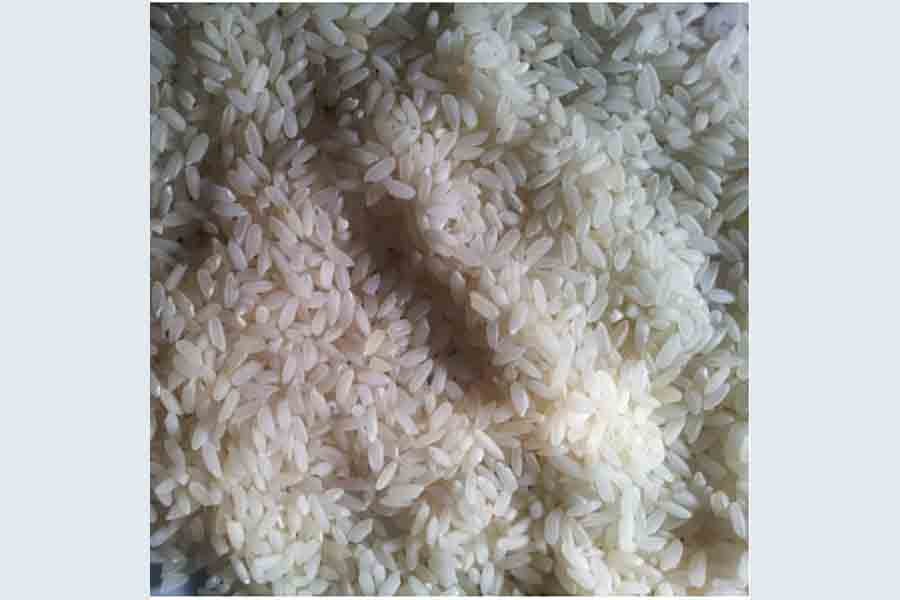The troubles that the Ministry of Food has been experiencing to stem the soaring rise prices should come as an appropriate lesson for it in future years. Complacency over domestic food production led the ministry to go into deep slumber overlooking the need for replenishing the dwindling stock of the government silos.
Both consumers and government are now counting the cost of the failure on the part of the food ministry. The prices of rice, the main staple, are still maintaining the record high level despite slight fall --between only Tk 2.0 and Tk 5.0 a kilogramme (kg) -- during the last couple of weeks.
The loss of crops due to the flash flood in haor areas is blamed for the hike in rice prices. But the fact remains that the prices of the item were creeping up in the months prior to that natural calamity. The flash flood only added pace to the price rise.
When the price of coarse rice increased to Tk 45, the food ministry came out of the deep slumber but hardly could do anything notable to bring down the price level, as the rice stock in government silos by then had come down to its lowest level in many years. The volume was too low to make any intervention by the government to tame an overheated rice market.
A desperate food ministry made a rush for procuring rice from the major rice exporting countries, including India, Vietnam, Thailand and Cambodia. The global rice market that was somewhat dull for quite some time got a nudge by the Bangladesh's bid to import a large volume of the staple. Most of these countries raised their price tag. However, the government imported more than 250,000 tonnes of non-parboiled rice, locally known as 'atap', mainly from Vietnam and Thailand.
However, the imported non-parboiled rice, lately, has emerged as a problem for the government. It is not that the officials of the food ministry, who handled the import of 'atap' rice is not aware of the fact that most people in Bangladesh don't eat this type of rice. Yet they approved its import out of their feeling that the high cost of rice in the local market would force the consumers to change their food habit or taste. But they were proved wrong. Consumers are not buying 'atap' rice. The trucks selling the item under the food directorate's 'Open Market Sale' (OMS) programme has failed to draw even the poorer section of the people though the rice is being sold at subsidised rate. Another reason --non-availability of adequate volume of parboiled rice, however, forced the government to import non-parboiled rice.
The government has now shifted to import of parboiled rice even at higher costs. But what would happen to a large stock of 'atap' rice? The directorate of food so far could sell/ distribute nearly 90,000 tonnes and it has a stock of another 160,000 tonnes. The officials concerned are now worried about the fate of the remaining stock since it involves a large amount of money. If the stock of 'atap' remains unsold for another six months, it would turn unfit for human consumption.
It is not long ago that the food ministry was hit by a major 'wheat scam'. That, however, had taken place in a different situation. Yet if taxpayers' money is wasted again on import of rice in defiance of the taste of consumers, it would highlight the lack of competence and efficiency of the people in the food ministry.


